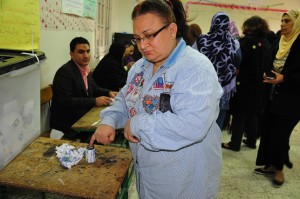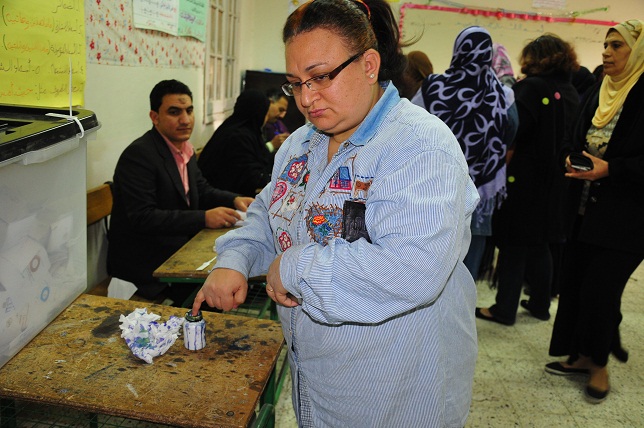
Judges for Egypt has announced that it oversaw the first stage of the referendum held on Saturday, despite earlier statements to the contrary.
Zaghloul Al-Belshy, the secretary general of the Supreme Electoral Committee had said members of the judge’s group would not be allowed to oversee the referendum. However members of the group did oversee the referendum despite his statements, state-run Al-Ahram reported him saying.
Judges for Egypt is a group of judges seen as being affiliated with the Muslim Brotherhood.
Nasser Amin, head of the Arabic Center for the Independence of the Judiciary and the Legal Profession, said some of the members of the group may have taken part in the overseeing process but their numbers were small and their participation is not likely to have an impact.
Amin said the government used the same methods that Mubarak used when it decided that members of judicial institutions would oversee the referendum. “Members of judicial institutions are not all judges. They could be just employees in judicial institutions or the Ministry of Judges,” he said. “This has not been denied by the government.”
Amin said there were very few judges overseeing the larger polling stations, which meant that they could not control them.
The Judges’ Club on the other hand, earlier announced that most of its members would not monitor the referendum. It did however set up an operation room to assist the few judges from the club who took part in overseeing the voting process.
Magdy Abdel-Hamid, head of the Egyptian Association for Promoting Community Particpation, called on the judges who are refusing to oversee the elections to monitor the second phase next Saturday, in order to limit violations.
Amin said a judge’s refusal to monitor the referendum did not necessarily indicate a specific political orientation. “The judge is asking for conditions and guarantees to be met,” Amin said, adding that judges refused to oversee elections during Mubarak’s era for the same reasons.
Seif Al-Islam Hammad, from the Hisham Mubarak Law Centre, said the problem was that it is not possible to tell who was at the polling stations. “We can only know from what the Supreme Electoral Committee says, despite our reservations on it,” he said.
The proposed constitution was written by the Constituent Assembly, headed by Hossam El-Gheriany. He is also head of the National Council for Human Rights which authorises election monitors. Bahy El-Din Hassan, the manager of the Cairo Institute for Human Rights Studies said that many NGOs have boycotted the centre because “it’s almost a human rights committee for the Freedom and Justice Party.” The council said it issued 24,000 passes, but “to whom exactly?” Hassan asked.
Hammad said the fact that Gheriany headed the assembly and council alone proves nothing. The answer was for the council to publish lists of who applied for passes and who got them.
Hammad said transparency regarding the referendum and “providing information is very important so that the people can decide themselves.”
“No one has said who supervised the referendum…. this makes it debatable,” he said.
The first phase of the referendum included 10 governorates and has roughly divided Egypt’s approximately 51 million voters between the two phases.


